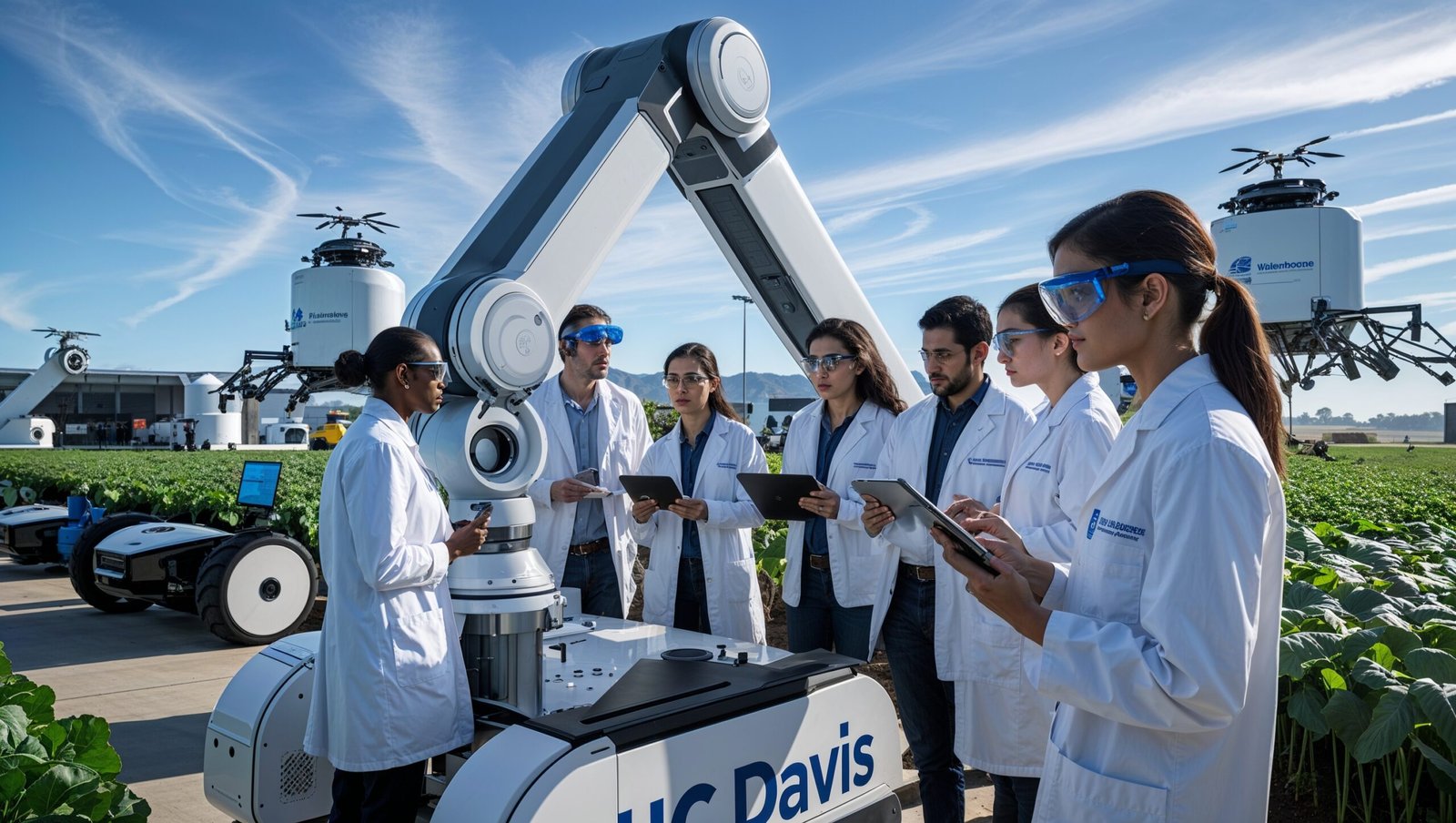University of California, Davis: An In-Depth Insights
The University of California, Davis (UC Davis) is a public research university located in Davis, California. As one of the ten campuses of the University of California system, UC Davis is known for its educational excellence, cutting-edge research, and vibrant campus life. Established in 1905, UC Davis has grown into a comprehensive rule-governed institution, offering a multitude of undergraduate, graduate, and professional degree programs across various fields.
Academic Programs and Research
UC Davis is renowned for its diverse academic programs which span from agriculture and environmental sciences to engineering, business, and healthcare. The university is particularly noted for its School of Veterinary Medicine, consistently ranked as one of the top in the nation. Additionally, the College of Agricultural and Environmental Sciences stands out as a leader in addressing complex global issues such as sustainability and food security.
Research at UC Davis is a cornerstone of its mission. The university is a powerhouse of innovation, receiving substantial funding to support research initiatives that tackle worldwide challenges. These initiatives are not only limited to the sciences but extend to the humanities and social sciences, encouraging interdisciplinary collaboration. UC Davis researchers actively contribute to advancements in fields like plant genomics, food safety, environmental policy, and veterinary health.
Campus Life and Student Activities
With a sprawling campus covering over 5,300 acres, UC Davis presents ample opportunities for students to engage in an array of extracurricular activities. Over 800 student organizations exist, catering to a wide range of interests, allowing students to cultivate leadership skills and pursue personal passions. From Greek life to cultural clubs, UC Davis provides a nurturing environment for personal growth and community involvement.
The campus’s proximity to the city of Davis offers students additional recreational and cultural experiences. Davis is recognized for its bike-friendly infrastructure, complementing the university’s commitment to sustainability. This focus on environmental consciousness is visible in various student-led initiatives, including the Arboretum and Public Garden, which serves as an outdoor laboratory for ecological research and education.
A Commitment to Sustainability
UC Davis’s dedication to sustainable practices is evident in their operations, planning, and education. As a leader in green initiatives, the university has been recognized for its efforts in reducing carbon footprints, promoting renewable energy, and integrating sustainability into the curriculum. The UC Davis Sustainability Office plays a pivotal role in coordinating these efforts, making the campus a model of environmental stewardship.
The university’s arboretum showcases over 22,000 types of trees and plants, acting as a natural haven and research site. Furthermore, the Western Center for Agricultural Health and Safety underscores UC Davis’s commitment to enhancing agricultural practices in alignment with environmental health.
Diverse and Inclusive Community
Maintaining a commitment to diversity and inclusivity, UC Davis fosters an environment where every individual—irrespective of their background—can thrive. Dedicated support systems, such as the Center for African Diaspora Student Success and the LGBTQIA Resource Center, emphasize the university’s stance on equity and support for underrepresented communities.
The Global Education for All initiative further reinforces UC Davis’s objective to equip students with skills necessary for success in an interconnected world. Through global learning opportunities, students are encouraged to engage with different cultures and perspectives, reinforcing a culture of respect and understanding.
Opportunities for Global Engagement
UC Davis provides numerous avenues for students to engage on a global scale. From study abroad programs to collaborative international research projects, the university fosters an environment of global citizenship. Partnering with institutions around the world, UC Davis actively participates in programs that focus on various global challenges, emphasizing the importance of cross-cultural understanding and cooperation.
The faculty at UC Davis includes nationally and globally recognized scholars, many of whom contribute to this global agenda by leading cutting-edge research and hosting international conferences, creating a vibrant academic discourse that transcends borders.
Conclusion
The University of California, Davis stands as a beacon of academic excellence, innovation, and inclusivity. Its commitment to fostering sustainable development, promoting a diverse and inclusive campus, and engaging with global communities makes it a dynamic institution where students are equipped to become leaders of tomorrow.
People Also Ask
What is the UC Davis acceptance rate?
The UC Davis acceptance rate varies each year, but it typically ranges around 39-41%. This rate reflects the university’s selective admissions process, highlighting its commitment to maintaining high academic standards.
What programs is UC Davis known for?
UC Davis is known for its outstanding programs in veterinary medicine, agriculture, environmental sciences, biology, and engineering. Its School of Veterinary Medicine and the College of Agricultural and Environmental Sciences are particularly esteemed.
Is UC Davis a good school for environmental science?
Yes, UC Davis is an excellent school for environmental science. It has a strong commitment to sustainability and offers a range of programs and research opportunities in environmental policy, ecology, and resource management.
What type of campus does UC Davis have?
UC Davis has a large, sprawling campus that spans over 5,300 acres, offering a mix of modern facilities, historical architecture, and extensive outdoor spaces. It’s known for its natural beauty and bike-friendly infrastructure.
How does UC Davis support diversity and inclusion?
UC Davis supports diversity and inclusion through various programs and centers like the Center for African Diaspora Student Success and the LGBTQIA Resource Center. Initiatives like Global Education for All also encourage cultural understanding and global engagement.







